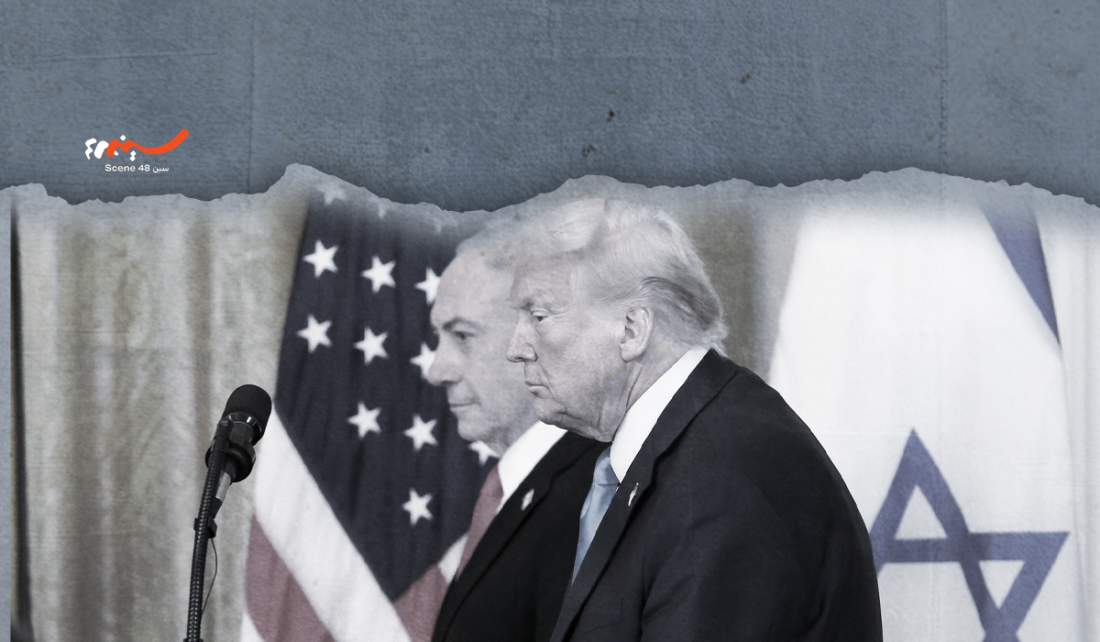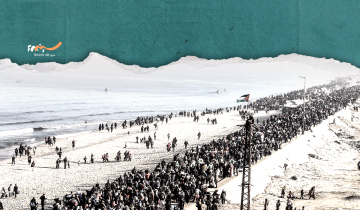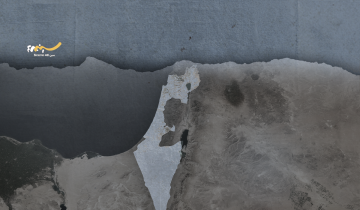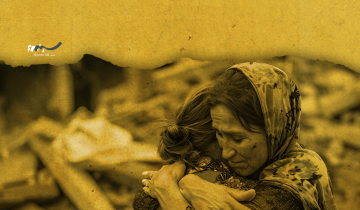Deep Colonialism in Palestine: Towards a New Paradigm?

The uniqueness of the colonization of Palestine lies in the overlapping, intensity, and continuity of three foundational layers of the colonial project. Since at least the mid-nineteenth century, this colonization has fused religious, imperial and settler colonialism. At various times and phases—individually or in combination—these three forms have operated forcefully in the advancing the Jewish colonialization of Palestine. They converged coherently at the pivotal moment of Israel’s creation in 1948 and continued to reinforce one another ever since. The integration of religious, imperial, and settler colonial forms creates what I term “deep colonialism” that transcends any single mode of colonialism and makes the Palestine case exceptional in both longevity and depth. Deep colonialism—the main theme of my forthcoming book—offers a framework for understanding the modern history and politics of Palestine’s unique colonial condition. It seeks to illuminate the enduring interplay of these three colonial dimensions and their cumulative impact on the Palestinian experience.
Revisiting the broader context of a century and a half of the colonial reality in Palestine allows for a clearer understanding of the evolution and complementarity of the three forms of colonization, as well as their enduring functionality over time. Equally, examining the specific successive historical periods reveals the defining features of each form—religious, imperial, or settler—and highlights their continual adaptation and renewal. I argue that privileging a single perspective, religious, imperial, or settler, while neglecting or minimizing the working of the other two results in incomplete and potentially misleading picture. Even when one form appears more dominant or explanatory in a given moment, the three have remained deeply interwoven, consistently reinforcing one another in sustaining the colonization of Palestine to this day.
Consequently, the integrated relationship among the three colonial forms must serve as the foundation for understanding and conceptualizing the Zionist colonization of Palestine over time. A helpful metaphor is that of a triangle, where each side—representing religious, imperial, and settler colonialism—is existentially linked to the others, collectively defining and controlling the inner space: Palestine. While the relative prominence of each side may shift over time—expanding or contracting in response to changing historical and political conditions—none can be dispensed with. The temporary diminishment of one form does not signal its disappearance but rather reflects the intensified role of the other two. Each remains essential to the structural integrity and functionality of the colonial project. For example, in the post-Cold War era, when the imperial dimension—namely, American and Western support for Israel as a strategic bulwark against the Soviet Union—appeared to recede, the religious and settler colonial dimensions grew more pronounced. This dynamic interplay underscores the enduring synergy among the three forms in sustaining the colonization of Palestine.
We can conceptualize two distinct phases of this deep, threefold colonialism: a ‘linear phase’ preceding the creation of Israel in 1948, and a ‘triangle phase’ that followed. The linear phase begins in the mid-19th century, marked by early religious colonization efforts led by Christian restorationists. These efforts were subsequently appropriated and advanced by British imperial interests, and eventually taken up by Zionist settler-colonial actors, culminating in the establishment of the Israeli state. The term ‘linear’ here refers to the general sequence of dominance—religious, followed by imperial, then settler—without implying the absence of the other forms at any given stage. Each remained present, even if operating in the background. This phase reached its apex with the founding of Israel in 1948, at which point the colonial dynamic transitioned into a ‘triangle phase.’ In this new phase, the three colonial forms—religious, imperial, and settler—became fully re-integrated, functioning in a coherent and mutually reinforcing manner. This triangular configuration has since defined the enduring structure of the Zionist colonial project, shaping the political and material realities of Palestine over the subsequent decades.
The proposed perspective of deep colonialism challenges the dominant settler-colonial paradigm that has shaped much of the scholarly—and political—discourse on the colonial reality in Palestine. While the settler-colonial framework offers powerful analytical tools and highlights important global commonalities across similar colonial contexts, its paradigmatic dominance in the Palestinian case risks overshadowing the equally central roles of religious and imperial colonialism. To be sure, settler-colonial scholarship often acknowledges the historical influence of religious and imperial forces in Palestine. However, over time, these dimensions have become increasingly marginalized in academic discourse. This marginalization is partly a result of the consolidation of the Zionist settler project as a material and political reality, and partly due to the widespread adoption of the settler-colonial lens as the primary interpretive framework for understanding that reality. The deep colonialism approach seeks to re-center these neglected dimensions, emphasizing the enduring interplay and mutual reinforcement of all three colonial forms—religious, imperial, and settler—in shaping the past and present of Palestine.
As a result, both consciously and unconsciously, the religious and imperial components of the Zionist settler project have been marginalized at theoretical and political levels. Consciously, among supporters of Israel, there has been a deliberate emphasis on portraying the state as a modern, democratic entity whose alliances with global powers are framed within the normative logic of international relations, rather than as expressions of imperialism. Similarly, the enduring religious dimension—manifested in phenomena such as the rise of Jewish extremism and Christian Zionism—has often been downplayed or only superficially acknowledged within broader narratives. Unconsciously, among scholars and activists who have adopted the settler-colonial framework as the sole lens of analysis, religious and imperial colonialism have frequently been relegated to the realm of historical prelude. These dimensions are often treated as part of a bygone preparatory phase—the ‘linear phase’—that culminated in the establishment of Israel. Once the state was founded, the assumption has been that settler colonialism alone became the driving force, effectively eclipsing the ongoing relevance of the religious and imperial logics that continue to shape the colonial reality in Palestine.
In light of this tendency to de-signify religious and imperial colonialism, I argue that these two forms have, in fact, operated in tandem with settler colonialism from the earliest Zionist colonies in Palestine to the present day. While their outward expressions have evolved in response to shifting historical and political contexts, the core logics of all three colonial forms have remained consistent. For instance, in the case of religious colonialism, the fervent messianic drive of early Christian Zionist movements was, at times, softened into more benign expressions—such as spiritual affinity or a sentimental attachment to the Holy Land. Similarly, imperial colonialism has been reframed to obscure its deeper structural role: British imperial support for Zionism was often reduced to the fulfilment of a League of Nations mandate, while American imperial backing has been portrayed as a conventional bilateral alliance, rather than a continuation of imperial strategy. These shifts in representation, however, do not diminish the enduring influence of religious and imperial colonialism. Rather, they reflect the adaptive strategies through which these forms have remained integral to the broader Zionist colonial project.
The administrations of Donald Trump (2017–2021, 2025– ) and Joe Biden (2021–2025), and their blind support of Israel during its genocide in Gaza, offer compelling evidence of the enduring and resurgent roles of religious and imperial colonialism in the Zionist project. The power of the pro-Israel evangelical forces that penetrates the main levers of power including the White House is undeniable. American presidents, Secretaries of state, top officials, and ambassadors to Israel, speak religion, Bible and God when they talk about their backing of Israel. Simultaneously, the imperial logic persists. Israel continues to be framed as outpost of Western power in the region, an ‘organic extension’ of the ‘civilized West,’ as commonly defended in American and European discourses and politics.
Finally, while the dominant force within the deep colonial structure—whether religious, imperial, or settler—may shift over time, along with prevailing discourses, degrees of explicitness, and other contextual dynamics, the organic relationship among the three has remained unbroken. The settler-colonial manifestation of the Zionist project on the ground could not have emerged, let alone endured, in isolation from its imperial origins. It has always required a patron—first Britain, then the United States—to ensure its survival, growth, and consolidation, even after the settler project reached maturity. Similarly, the religious dimension has continued to provide ideological and emotional sustenance, reinforcing the project’s legitimacy, and mobilizing support across generations. Together, these three dimensions—religious, imperial, and settler—have not only coexisted but have functioned as an integrated system. Their synergy has produced a uniquely entrenched and violent colonial reality, best understood through the lens of what I term deep colonialism.

Dr Khaled Hroub
(PhD) is a Palestinian academic and writer, and professor of International Relations and Middle Eastern Studies at Northwestern University.



